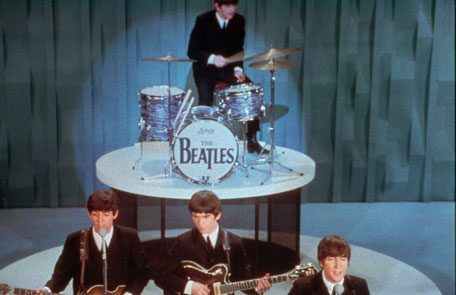- City Fajr Shuruq Duhr Asr Magrib Isha
- Dubai 04:32 05:49 12:21 15:48 18:47 20:04
Genius, 12, expands Einstein's theory of relativity
US: Could Einstein's Theory of Relativity be a few mathematical equations away from being disproved? Jacob Barnett of Hamilton County, Ind., who is just weeks shy of his 13th birthday, thinks so. And, he's got the solutions to prove it.
Barnett, who has an IQ of 170, explained his expanded theory of relativity - in a YouTube video. His mother Kristine Barnett, who admittedly flunked math, did what every other mother would do if her genius son started talking mathematical gibberish. She told him to explain the whole thing slowly while she taped her son explaining his take on the theory.
While most of his mathematical genius goes over our heads, some professors at the Institute for Advanced Study in Princeton, New Jersey - you know, the U.S. academic homeroom for the likes of Albert Einstein, J. Robert Oppenheimer, and Kurt Gödel - have confirmed he's on the right track to coming up with something completely new. For now, they're encouraging Barnett to continue doing what he likes to do, which is explaining calculus using a whiteboard marker and his living room windows as seen in the video above.
“I'm impressed by his interest in physics and the amount that he has learned so far,” Institute for Advanced Study Professor Scott Tremaine wrote in an email to the family.
“The theory that he's working on involves several of the toughest problems in astrophysics and theoretical physics.”
“Anyone who solves these will be in line for a Nobel Prize,” he added.
Barnett's parents knew that there was something different with their son when he didn't speak until the age of two. He was diagnosed with Asperger's syndrome, a mild form of autism, so they thought he might have problems in school. Instead, they were astounded when he started solving 5,000 piece puzzles by the age of 3. The 12-year-old taught himself calculus, algebra and geometry in two weeks, and can solve up to 200 numbers of Pi. He left high school at the ripe old age of eight and has been attending college-level advanced astrophysics classes ever since.
Right now, Barnett is being recruited by Indiana University - Purdue University Indianapolis for a paid research position. We figure he'll find a way to pencil that in between dating his girlfriend and playing Halo: Reach, one of his favorite video games. Yes, he can play classical music by memory on the piano, but he also enjoys watching shows on the Disney Channel and sci-fi movies. In many ways, he's your typical 12-year-old boy.
Einstein was 26 when he first published his Theory of Relativity. We figure that Jake has a couple of years to kick back and relax before he finally debunks the big bang theory.
“I'm still working on that,” he said. “I have an idea, but… I'm still working out the details."
Website pays $950,000 for using Beatle hits
 (AP)
(AP)
US: A website that sold Beatles songs online for 25 cents each before they became legally available has agreed to pay record companies nearly $1 million to settle a federal lawsuit.
US District Judge Josephine Staton Tucker signed off on the settlement between BlueBeat.com and music companies EMI Group, Capitol Records and Virgin Records America on Friday. The judge ruled in December that the site violated the music labels' copyrights and presented unfair competition.
A trial to determine how much BlueBeat owed the companies was scheduled to begin today.
BlueBeat streamed and sold music by the Fab Four and other top-name acts, including Coldplay and Lily Allen, for several days before music companies sued to shut it down in November 2009. By then, the site had already distributed more than 67,000 songs by The Beatles.
The posting of Beatles songs came shortly after the release of the group's re-mastered albums and a pricey box set. A year later, Apple announced with great fanfare that it was selling Beatles music on its popular music service iTunes.
Within the first week, more than two million Beatles songs were purchased online for $1.29 apiece and 450,000 albums were sold.
BlueBeat had denied wrongdoing, claiming owner Hank Risan had pioneered a method called "psycho-acoustic simulation" that resulted in unique versions of copyrighted music.
The judge rejected his arguments and explanations of his technique in her December ruling, noting that Risan's recordings were based on copies of CDs that he had purchased.
Risan said the settlement amount was a fraction of what the companies sought. He said the site, which is still active but doesn't have any Beatles music available, is still working to register copyrights for 800,000 recordings.
"So long as we pay royalties, we can stream their stuff all day and all night without a problem," said BlueBeat's attorney Archie Robinson.
"We basically settled the case for their attorney fees," Robinson said. "I felt that was sort of an acknowledgement on their part that they don't have the damages they claimed."
Nasa receives first picture of Mercury
 (AFP)
(AFP)
NASA has released the first picture taken of Mercury's surface by the US space agency's orbiting Messenger craft.
"Early this morning, at 5.20 am EDT (2020 AEDT) , Messenger captured this historic image of Mercury," NASA said.
"This image is the first ever obtained from a spacecraft in orbit about the solar system's innermost planet."
The spacecraft snapped 363 images over the next six hours, and more were expected to be released later today in conjunction with an expert press conference to discuss the findings.
The upper part of the image shows an unusual, dark-rayed crater called Debussy, while the lower part reveals a portion of Mercury near its south pole that has never before been witnessed by spacecraft, NASA said.
NASA's Messenger craft - which stands for MErcury Surface, Space ENvironment, GEochemistry, and Ranging - became the first vehicle to orbit Mercury on March 17.
Messenger was launched more than six years ago, traveling through the inner solar system and embarking on flybys of Earth, Venus and Mercury.
The first NASA craft to study Mercury since the Mariner mission more than three decades ago, Messenger has already been able to return a partial map of the planet's crater-filled surface after just a handful of flybys.
Women behave like their mothers at 32
 (AGENCY)
(AGENCY)
LONDON: Most women across the world start behaving like their mothers when they reach the age of 32.
They start talking to their children with phrases their own mothers used, begin stocking up on groceries and go to bed early, according to the Daily Express.
Nearly 40 percent women admitted using their mother's expressions and a quarter even claimed to talk this way with their partners.
The poll of 1,000 men and women by ebay.co.uk found that a quarter of mothers wear the same set of five to 10 clothes day after day.
Behavioural expert Judi James said: "You can vow never to say or use the traits you associate with your parents but the chances are they're ticking away like a time bomb in your subconscious. And given the same set of circumstances, you'll find them emerging and there's very little you can do to avoid it."
![]() Follow Emirates 24|7 on Google News.
Follow Emirates 24|7 on Google News.